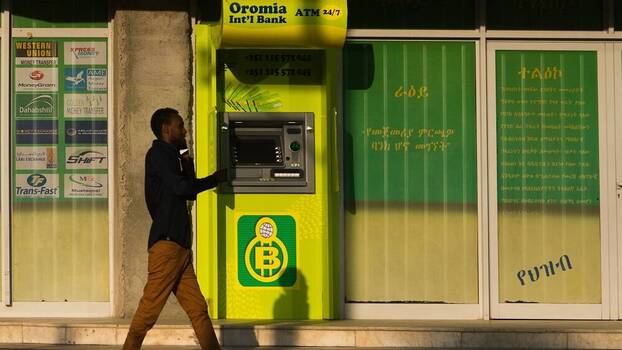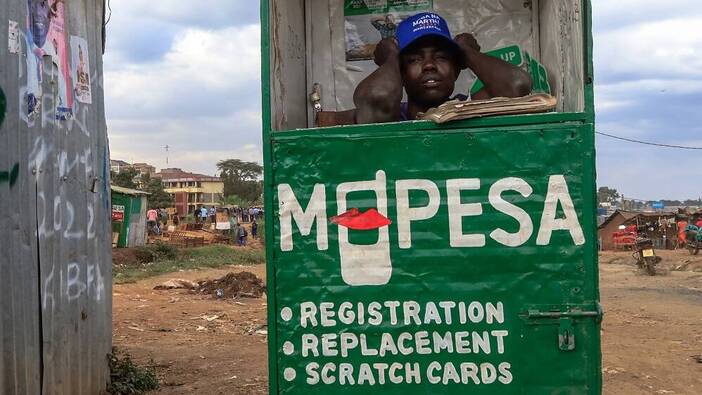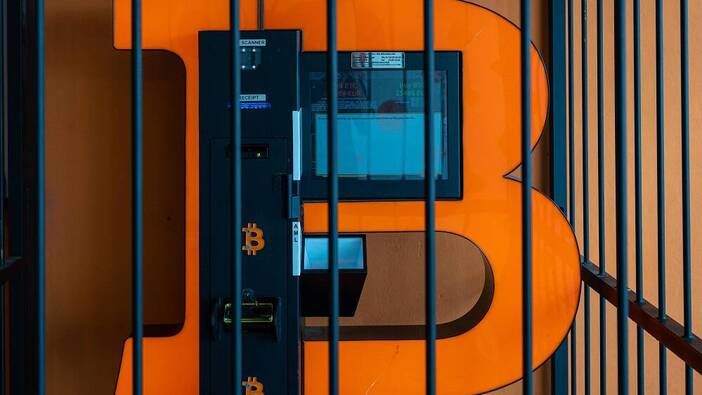
Of the over 1 billion people who live and work in Africa, most have no access to the traditional banking sector. This fact, compounded by precarious working conditions, poor infrastructure, and Africa’s low position in the international division of labour make it very difficult for most Africans to build up savings, whether for private investment, retirement, or other purposes. Against that backdrop, so-called “FinTech” (financial technology) platforms like the Kenyan M-Pesa have flourished across the African market, promising customers financial inclusion and increased access to international financial markets.
Co-Pierre Georg is currently an Associate Professor at the EDHEC Business School in Nice. He was previously an Associate Professor at University of Cape Town where he held the South African Reserve Banks Research Chair in Financial Stability Studies. He is also the Director of the Algorand-UCT Innovation Hub.
Increasingly, African FinTech is also attracting the attention of major Big Tech firms from around the world. The impact of these firms is still limited, but companies like Google Pay are starting to develop partnerships with regional FinTech firms, and “home-grown” FinTech platforms like M-Pesa have made companies such as Safaricom the most profitable in the region. Meanwhile, others have floated cryptocurrencies like Bitcoin as the answer to Africa’s financial woes.
What will FinTech’s growth in Africa mean for everyday Africans? Can these technologies be harnessed for the public good, and if so, how? Fabio De Masi, author of the recent Rosa Luxemburg Foundation study When Finance Meets Big Data: Financial Technology and the Scramble for Africa, sat down with economist and academic Co-Pierre Georg to get his perspective on the building a pathway to financial inclusion in Africa and beyond.
What is your broader view on data-driven business models? Is FinTech always and everywhere the key to the financial inclusion of underbanked people, or do we also need to secure access to cash for people in the informal economy? Is financial technology even accessible to people with poor access to the internet and electricity?
This question really has two parts, I’ll answer them separately.
A big part of today’s data-driven business models is based on the expropriation of data and users’ inability to control data once they have shared it. While General Data Protection Regulation (GDPR) and other legislation tries to curb the unauthorized use of data, it is way too easy for companies to get around that by hiding how exactly they plan to use data in lengthy end user license agreements.
Consequently, users have no real control over what happens with their data and companies like Robin Hood253 that, for example, sell user data to third parties who then come in and take opposing positions in trades, affecting the price of a stock a user wants to buy. This has significant welfare effects on a larger scale and is a consequence of the way in which our existing data infrastructure was created.
I don’t think FinTech is a panacea for financial inclusion. Most people who are un- or underbanked also do not have a smartphone. The vast majority of FinTech companies use apps to deliver their services, excluding more than half of the world’s population. Those companies who offer services for feature phones often employ other predatory practices. M-Pesa, for example, which is often hailed as a success story, uses the same franchising model that McDonald’s uses to offload risk to M-Pesa agents who have to handle large amounts of cash and have no effective way of curbing the spread of counterfeit money.
The trend towards unbundling of financial services also means that new players will be able to create a bank-like experience without having a banking license.
I don’t think cash is the right solution either, though, because it is wildly expensive, impractical, and creates huge security risks. While there are some new technologies on the horizon that could help solve both digital and financial inclusion at the same time, more efforts are necessary to bring these from research into practice.
Which dangers do you see currently when Big Tech and Big Data meet FinTech (i.e. Facebook’s initial attempt to establish a stablecoin tied to a currency basket)? Is there risk of a company being too big to fail, and excessive market and data power?
My main concern with Big Tech companies moving into finance is that Big Tech has amassed a gigantic data advantage over traditional financial institutions. This data advantage will make it possible for them to solve frictions in financial markets (asymmetric information, adverse selection, moral hazard) cheaper and more efficiently than traditional financial institutions.
While this is great in principle, the problem is that Big Tech companies are insufficiently regulated. And the trend towards unbundling of financial services also means that new players will be able to create a bank-like experience without having a banking license, which means that we will have an uneven playing field that, in my opinion, will lead to significant risks to consumer protection and financial stability.
What is your take on central bank digital currencies (CBDC) and how should they be designed in your view?
The provision of cash is widely understood to be a public utility and as such organized by central bank and treasury. With the advent of the digital economy, which is on the rise in Africa as well as everywhere in the world, we are now seeing demand for digital means of payments.
However, due to the existing frictions in correspondent banking, the traditional financial system has not managed to provide effective means of ultra-low-cost digital payments. Consequently, there is a demand for alternatives, which is currently being satisfied only by the private sector.
The private sector pays much more than the public sector and therefore many of our smartest young people go into the private sector.
But I would argue that digital retail payments, just like cash or digital wholesale payments, are a public utility and should be provided by the public sector. In the interest of competitiveness and innovation, we should also allow private solutions, but a publicly provided means of digital payments can ensure that costs will not exceed a certain threshold while maintaining a high quality of service. Therefore, I think we need CBDCs.
When it comes to the design of CBDCs, I think we should follow the model of the internet, which is a highly interoperable network of networks that was designed to prevent walled gardens. Currently, I see a tendency towards centralized payment solutions that are not interoperable with one another. This creates walled gardens where competition is based on locking in users and capturing value within the walls of the garden rather than by innovation.
What is your take on crypto assets? Do they serve a purpose or would you associate them rather with Ponzi schemes?
I think crypto assets have shown that they can be an engine for innovation. Much of that has to do with the lack of regulation in the early days, but this also raises significant risks for consumers. I don’t think the term “Ponzi scheme” is fully appropriate because there are many crypto assets that facilitate use cases with fundamental value to consumers — which Ponzi schemes do not.
Critics argue that blockchain has yet to demonstrate its use case and the inherent problem would be proof of work. The blockchain as used in Bitcoin, for example, is being used to validate transactions while it could be argued that of all the things banks do poorly, proper double entry bookkeeping is not an issue to be concerned with. Others argue blockchain could also play a role in financial supervision etc. Where do you stand?
When the internet was created, it also took a long time before it demonstrated its commercial use. Blockchain is a new kind of infrastructure for innovative services. I think that asset tokenization has proven to be a powerful use case for blockchain because it eliminates many frictions in the traditional securitization scheme where origination, distribution, trading, clearing, settlement, safekeeping all happen in separate institutions instead of a horizontally and vertically integrated system. Blockchain is the infrastructure for such a system.
Another key use case in my opinion is to ensure provenance of data. Once I register a piece of data on a blockchain, I can create ownership claims, and as long as it cannot be double-spent, nobody can create a copy with the same provenance. This is valuable as the foundation of property rights for the digital economy.
With that being said, I am very sceptical of “proof of work” (PoW) because of the energy consumption. We have much more efficient ways to ensure the consistency of the ledger and I think it’s a useful direction to go into.
What are the biggest challenges in your view in regulating FinTech and crypto in South Africa or other important FinTech hubs such as Kenya or Nigeria?
The main challenge is the rapidly changing nature of FinTech companies. This poses a great challenge for regulators who are trying to reconcile a regulatory environment designed to regulate (financial) institutions to a world that consists of interconnected platforms rather than institutions.
There are other issues, for example with the skills that regulators can draw upon. The private sector pays much more than the public sector and therefore many of our smartest young people go into the private sector. This creates a skills gap between regulators and industry. Third, there is not yet an established industry body to engage with because the industry itself changes so quickly.
And, lastly, many FinTech companies are simply beyond the purview of financial regulation because they simply don’t fit into the existing scheme. This is particularly true for Big Tech companies as they enter financial services.





